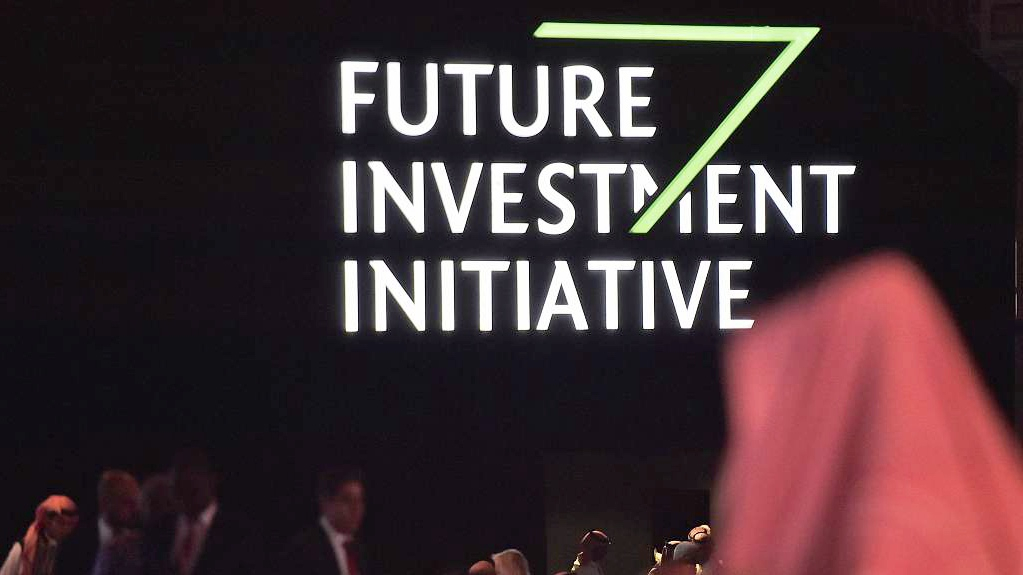02:05

Against a backdrop of global slowdown worries and rising social unrest, technology and inclusion policies are seen as top priorities, as some attendees share their takes at this year's Future Investment Initiative (FII) summit in Riyadh, Saudi Arabia.
This year's FII summit, also known as the "Davos in the desert," is focused on exploring the emerging industries that will shape the global economy and investment landscape over the coming decades.
Gravity is a company augmenting the body and mind with a suite of patent pending technology to enable unparalleled human flight.
Richard Browning, the founder of Gravity, says the company plans jetpack "flight" race over water. He hopes to push the technology in city centers all over the world, "hopefully inspiring the next generation."
Browning also says he is excited that the region is looking for other things to invest in beyond the traditional energy sector.

Attendees leave the venue on the second day of the Future Investment Initiative (FII) summit in Riyadh, Saudi Arabia, October 30, 2019. /VCG Photo
Attendees leave the venue on the second day of the Future Investment Initiative (FII) summit in Riyadh, Saudi Arabia, October 30, 2019. /VCG Photo
In the last 50 years, oil has been Saudi Arabia's main source of income. Right now, the government is "in very much support of building more accelerators," according to Tuba Terekli, high commissioner at World Business Angels Investment Forum Saudi Arabia.
She considers entrepreneurship to be in the DNA of Saudi Arabia, and the Kingdom's accelerated reform and opening-up will help drive innovation.
"We have so many success stories from the region. And Saudi entrepreneurs are not just for Saudi Arabia, but also for the whole GCC (Gulf Cooperation Council) region," she said.
The Fourth Industrial Revolution is expected to be a more powerful driver of growth since the emergence of new technologies such as AI, robots, blockchain and genomics.
And blockchain is considered to be a very key tool to enable more trust with less cost, according to Sam Lee, the founder of Blockchain Global.
"We feel that the cost of trust due to the geopolitical landscape has increased. And blockchain, although just a technology, is a very key tool as stated by Industry 4.0 to resolve a lot of trade tensions we see today," Lee said.
"And we're very privileged to be invited to participate in the ongoing dialogue to regulate and participate in the education process to help the ecosystem understand the benefits of trust transparency together by blockchain technology," Lee added.